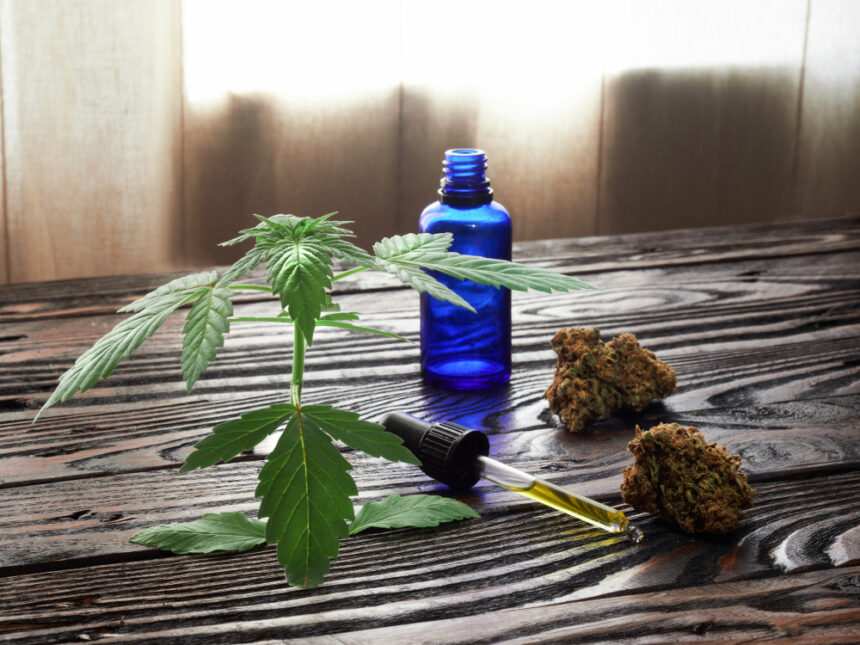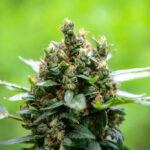Are you curious about the legal status of delta-10 THC? With the growing interest in cannabinoids, particularly those found in cannabis, it’s essential to understand the legal landscape surrounding delta-10.
As laws and regulations continue to evolve, navigating the legality of delta-10 THC can be complex.
In this guide, we’ll delve into the question: Is delta-10 legal? From state-by-state regulations to federal perspectives, we’ll explore the current legal status of delta-10 THC and provide insights to help you stay informed.
What Is Delta-10?
Delta-10 THC (tetrahydrocannabinol) is a cannabinoid found in the cannabis plant. It’s structurally similar to delta-9 THC found in delta 9 gummies, which is the primary psychoactive compound in cannabis.
Delta-10 THC has been gaining attention in the cannabis industry, but research on its effects is still limited compared to delta-9 THC and other cannabinoids like CBD (cannabidiol).
Delta-10 THC is believed to have psychoactive properties like delta-9 THC, but it may have different effects and potency levels. Some users report that delta-10 THC produces a milder high compared to delta-9 THC, with less anxiety and paranoia.
Is Delta-10 Legal?
Delta-10 THC legality is often subject to the same laws that govern cannabis and its derivatives.
The legality of delta-10 THC can be complex and can vary from state to state. Some states have legalized the recreational and/or medicinal use of cannabis and its derivatives, while others have strict regulations or outright bans.
It’s essential to check the specific laws and regulations in your jurisdiction to determine the legality of delta-10 THC.
Additionally, because the legal landscape surrounding cannabis and its derivatives is continually evolving, it’s advisable to stay informed about any updates or changes in regulations that may affect the legality of delta-10 THC products.
Currently, Delta 10 is prohibited in the following states: Alaska, Arizona, Arkansas, Utah, Colorado, Delaware, Idaho, Iowa, Mississippi, Montana, and Rhode Island. However, it’s legal in all remaining states.
Guide For Using Delta 10 THC Legally
To use delta-10 THC legally, it’s important to understand the regulatory landscape and comply with applicable laws and regulations in your jurisdiction. Here’s a general guide for using delta-10 THC legally:
Research Local Laws
Start by researching the laws and regulations governing cannabis and cannabinoid products in your state or country. Laws regarding the legal status of delta-10 THC can vary significantly from one jurisdiction to another.
Medical Marijuana Programs
If you reside in a state with a medical marijuana program, familiarize yourself with the eligibility criteria and registration process. Some states allow patients with qualifying medical conditions to access delta-10 THC products with a doctor’s recommendation.
Recreational Use Laws
In states where recreational cannabis is legal, individuals over a certain age (typically 21 or older) may purchase and use delta-10 THC products from licensed dispensaries. However, restrictions on possession limits, public consumption, and driving under the influence still apply.
Purchase from Licensed Retailers
Only purchase delta-10 THC products from licensed dispensaries or retailers operating legally within your jurisdiction. Licensed establishments like Delta 8 brands are more likely to sell products that comply with quality and safety standards.
Check Product Labels
Before purchasing delta-10 THC products, carefully review the product labels for information on potency, ingredients, and any required warnings. Ensure that the product has undergone third-party testing for potency and contaminants.
Avoid Federal Prohibited Areas
Be aware of federal regulations that prohibit the possession and use of cannabis on federal property, including national parks, military bases, and government buildings. Even in states where cannabis is legal, federal law still classifies it as a Schedule I controlled substance.
Travel Considerations
If you plan to travel with delta-10 THC products, research the laws and regulations of your destination to ensure compliance. Some states and countries have strict regulations regarding the transportation of cannabis and cannabinoid products across borders.
Responsible Use
Use delta-10 THC products responsibly and in moderation. Avoid driving or operating heavy machinery while under the influence of delta-10 THC, and store products securely away from children and pets.
Consult Legal Professionals
If you have specific legal questions or concerns regarding the use of delta-10 THC in your area, consider consulting with legal professionals who specialize in cannabis law for personalized guidance.
By following these guidelines and staying informed about local regulations, you can use delta-10 THC products legally and responsibly within the confines of the law.
How To Stay Informed On The Legality of Delta 10
Staying informed about the legality of delta-10 THC involves staying up-to-date with changes in cannabis laws and regulations at both the federal and state levels. Here are some tips to help you stay informed:
- Monitor Legislative Updates
- Check Official Government State Websites
- Consult Legal Resources
- Join Cannabis Advocacy Groups
- Follow Industry News
- Attend Cannabis Events and Conferences
- Engage with Local Authorities
- Subscribe to Legal Updates
Is Delta-10 Safe to Consume?
The safety of consuming delta-10 THC, as with any cannabinoid or substance, can vary based on factors such as dosage, individual health conditions, and potential interactions with other medications.
However, because delta-10 THC is a discovery and hasn’t undergone the same level of research and scrutiny as other cannabinoids like delta-9 THC and CBD, it’s important to approach it with caution.
As with any cannabis product, it’s advisable to start with a low dose and monitor how your body responds.
Additionally, it’s essential to obtain delta-10 THC products from reputable sources to ensure purity and quality.
Products should ideally undergo testing by third-party laboratories to verify their cannabinoid content and check for any contaminants.
How Does Delta 10 THC Affect the Body?
Delta-10 THC affects the body primarily by interacting with the endocannabinoid system (ECS), a complex network of receptors and neurotransmitters involved in regulating various physiological functions.
When delta-10 THC is consumed, it binds to cannabinoid receptors in the ECS, primarily CB1 and CB2 receptors, though its affinity and effects on these receptors may differ from those of delta-9 THC.
The specific effects of delta-10 THC on the body can vary widely among individuals and depend on factors such as dosage, method of consumption, and individual biochemistry.
Some users report experiencing psychoactive effects similar to delta-9 THC but with variations in potency and subjective experience. For instance, some individuals may experience a milder high with less anxiety and sedation compared to delta-9 THC, while others may notice different effects altogether.
Additionally, like other cannabinoids, delta-10 THC may also have potential therapeutic effects, though research in this area is still limited.
Some anecdotal reports suggest that delta-10 THC may have anti-inflammatory, analgesic, and anti-nausea properties, among others, but more scientific studies are needed to confirm and better understand these potential benefits.
Individual responses to delta-10 THC can vary, and the effects of this cannabinoid on the body are still being studied. As with any substance, it’s advisable to use delta-10 THC responsibly and consult with healthcare professionals if you have any concerns or underlying health conditions.
Available Products Containing Delta 10 THC
Products containing delta-10 THC have become increasingly available in the cannabis market. These products can vary widely in form and potency and may include:
- Delta-10 THC Vape Cartridges: These are cartridges filled with delta-10 THC oil that can be vaporized using a compatible vape pen or device. Vape cartridges offer a convenient and discreet way to consume delta-10 THC.
- Delta-10 THC Tinctures: Tinctures are liquid extracts that typically come in dropper bottles for easy dosing. Delta-10 THC tinctures can be consumed sublingually (under the tongue) for faster onset of effects.
- Delta-10 THC Edibles: Edibles are food or beverage products infused with delta-10 THC. These can include THC gummies, chocolates, candies, baked goods, beverages, and more. Edibles provide a convenient and tasty way to consume delta-10 THC, but onset of effects can be slower compared to inhalation methods.
- Delta-10 THC Concentrates: Concentrates are highly potent forms of cannabis extracts containing high levels of cannabinoids, including delta-10 THC. These can include oils, waxes, shatters, and resins, which are typically consumed by dabbing or vaporizing.
- Delta-10 THC Flower: Some cannabis cultivators are breeding strains that naturally contain higher levels of delta-10 THC. Delta-10 THC flower can be smoked or vaporized like traditional cannabis flower.
- Delta-10 THC Topicals: These are topical products infused with delta-10 THC, such as creams, lotions, balms, and patches. Delta-10 THC topicals are typically used for localized relief of pain, inflammation, and skin conditions [1] .
Does The FDA Regulate Delta 10 THC?
The regulatory status of delta-10 THC by the U.S. Food and Drug Administration (FDA) is not explicitly defined. The FDA primarily regulates drugs, food, dietary supplements, cosmetics, and other products that fall within its jurisdiction.
While the FDA has oversight over certain cannabis-derived products containing CBD (cannabidiol), it does not have specific regulations in place for delta-10 THC.
Is Delta 10 Natural or Synthetic?
Delta-10 THC can be found naturally in trace amounts in cannabis plants, similar to other cannabinoids like delta-9 THC, CBD, and CBG. However, it is typically present in very small quantities and is not as abundant or well-studied as other cannabinoids.
In recent years, there has also been interest in synthesizing delta-10 THC through chemical processes in laboratories. Synthetic delta-10 THC can be produced using various methods, including chemical synthesis or conversion from other cannabinoids.
Bottom Line
Navigating the legal landscape of delta-10 THC requires a clear understanding of state and federal regulations.
While delta-10 THC may be legal in some states, it’s crucial to stay informed about evolving laws and potential changes in classification.
By staying updated on legislative developments, consulting legal resources, and verifying information from reliable sources, individuals can make informed decisions regarding the legality of delta-10 THC in their jurisdiction.
As laws surrounding cannabis continue to evolve, staying informed is key to ensuring compliance and understanding the legal status of delta-10 THC products.
Reference:
- McDonagh, M. S., Morasco, B. J., Wagner, J., Ahmed, A. Y., Fu, R., Kansagara, D., & Chou, R. (2022). Cannabis-Based Products for Chronic Pain : A Systematic Review. Annals of internal medicine, 175(8), 1143–1153. https://doi.org/10.7326/M21-4520


